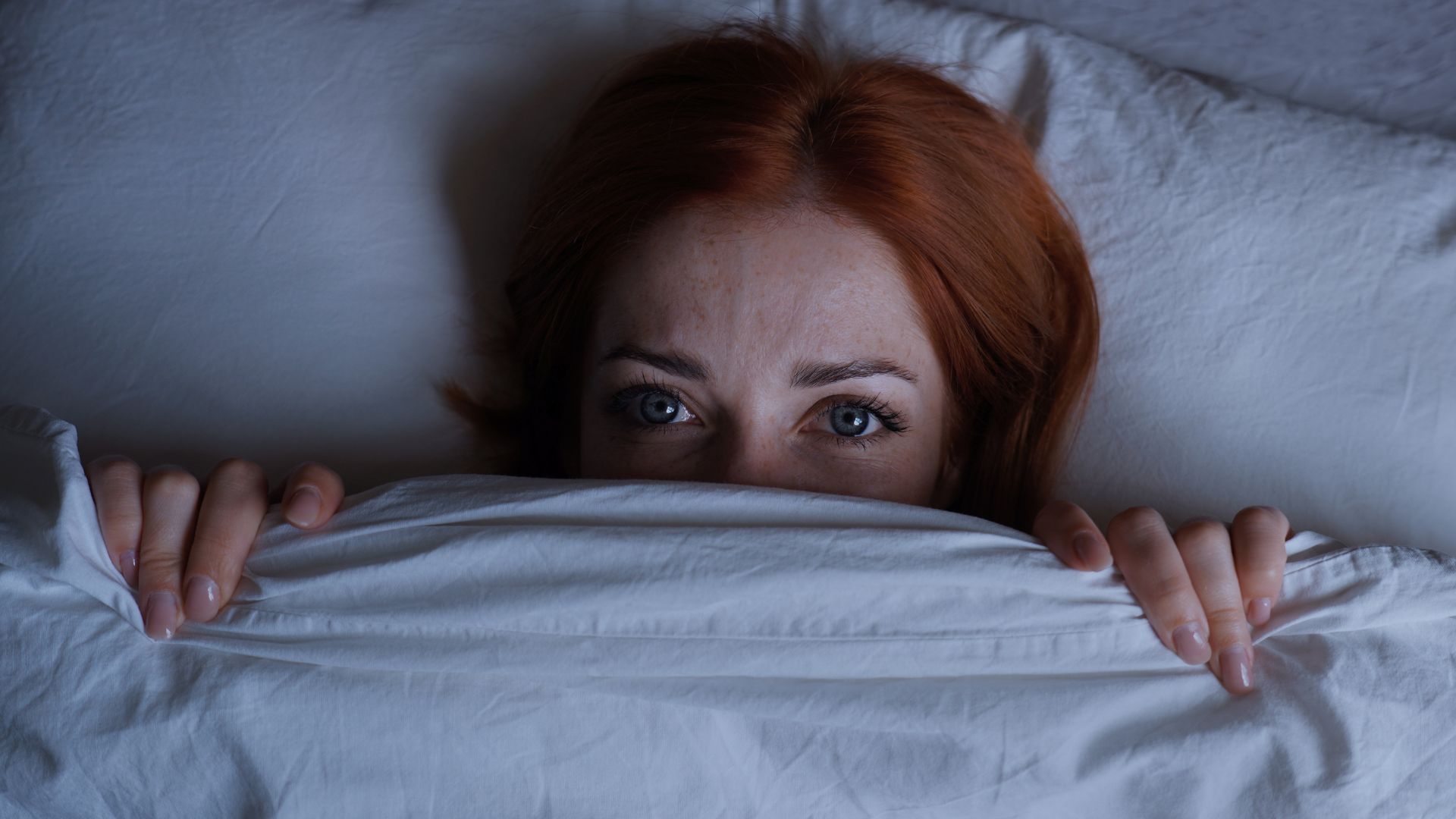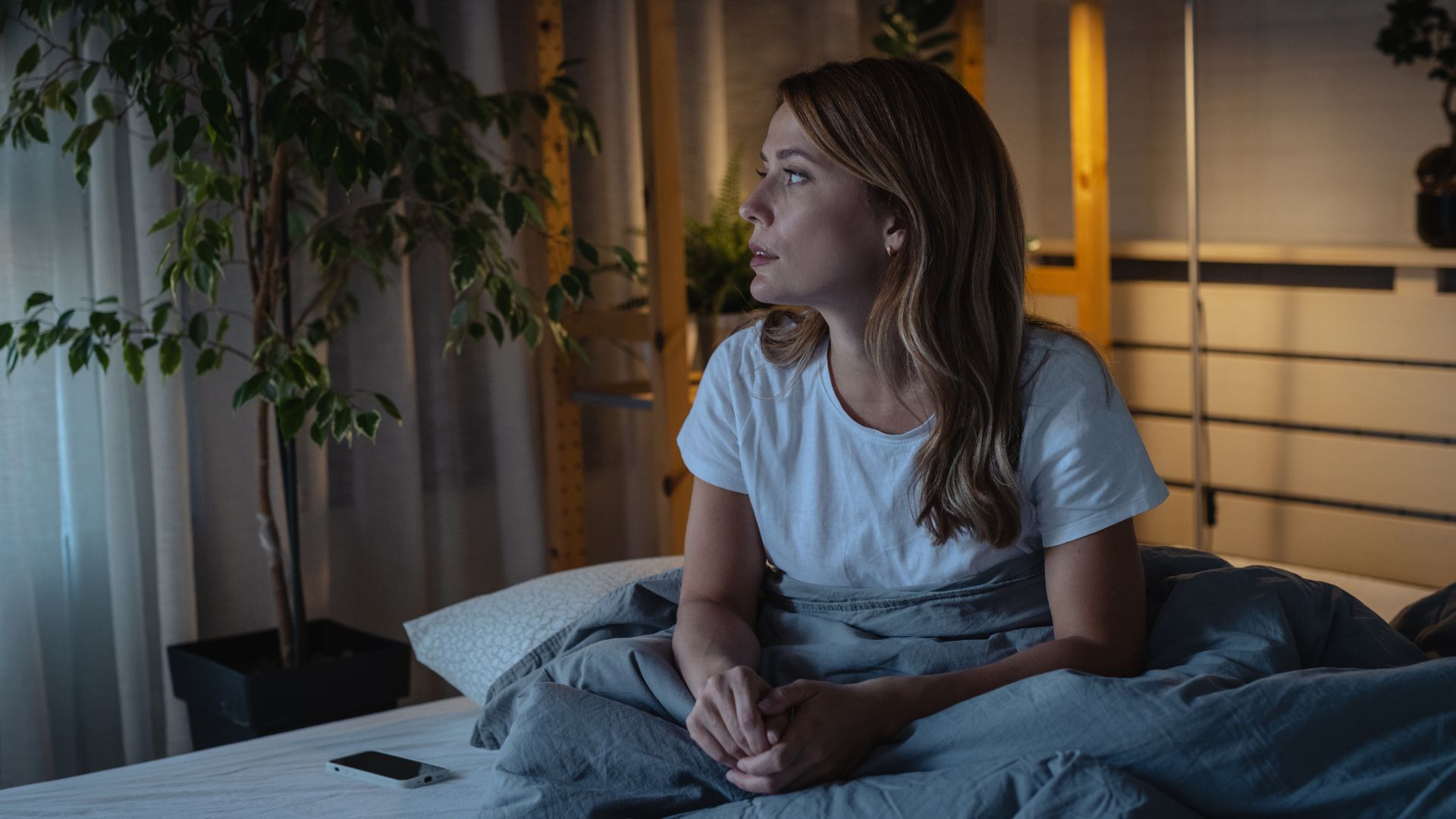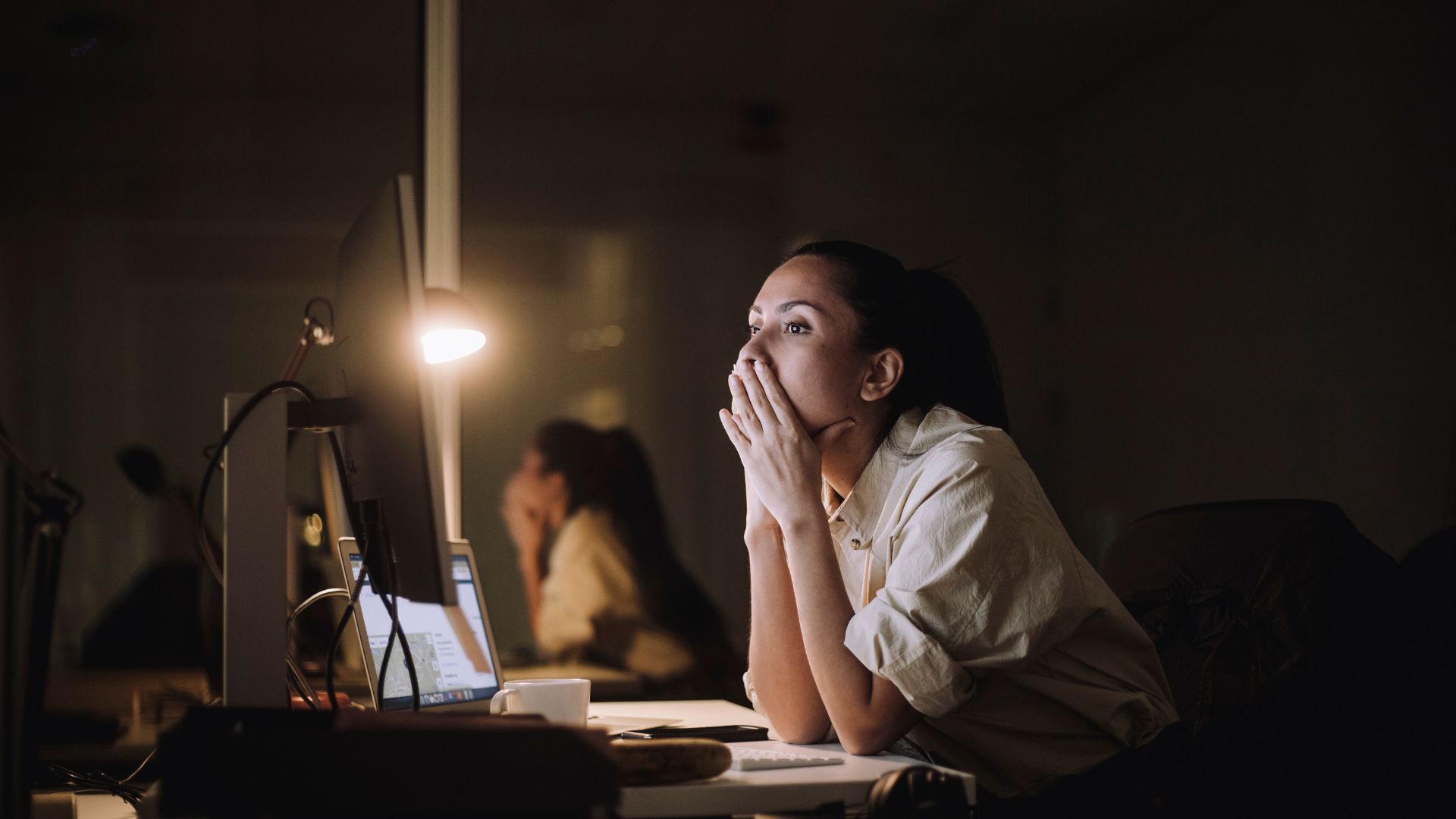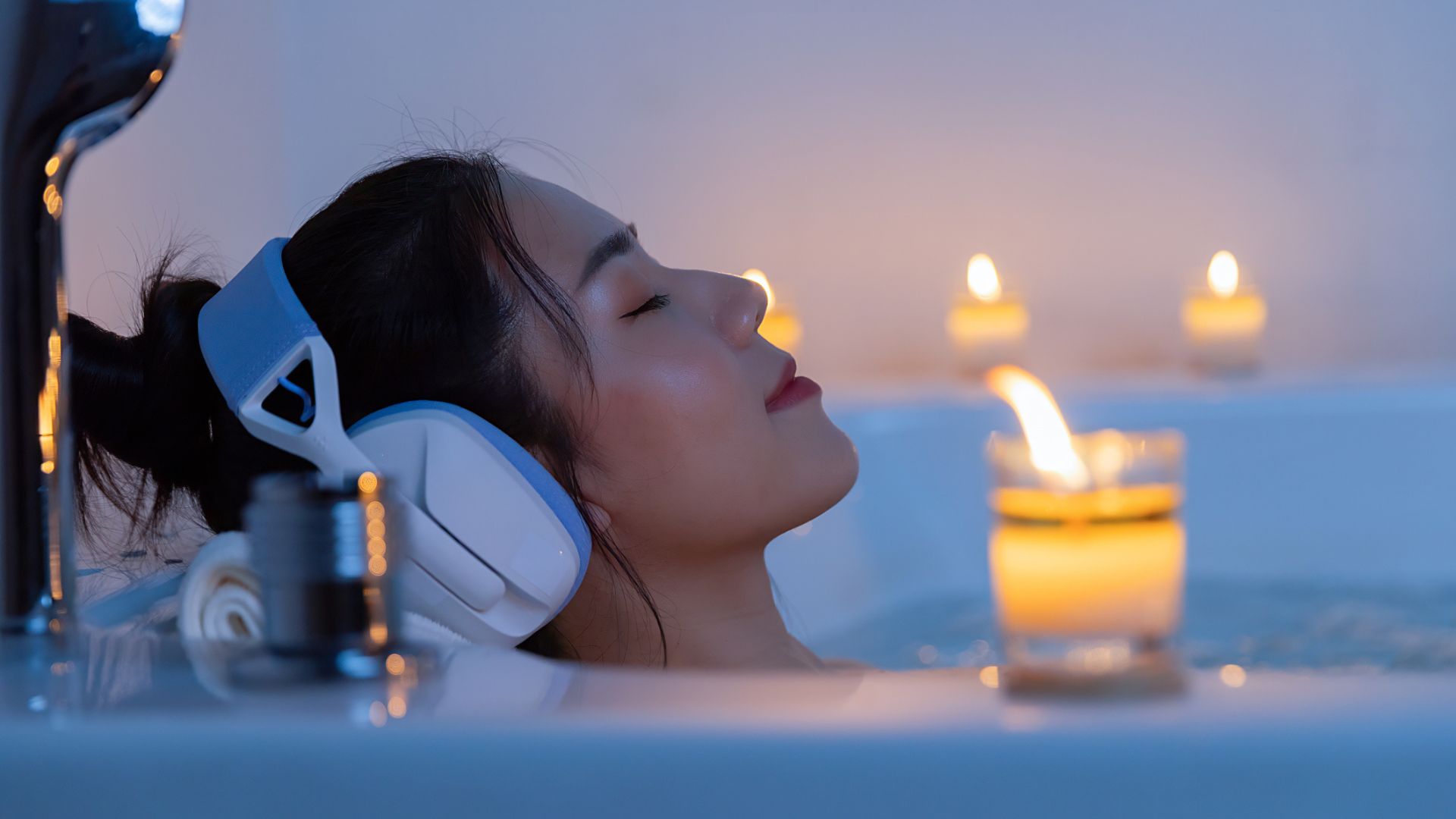Sunday scaries and holiday burnout — why you're waking up in the middle of the night and how to stop
Colder weather and the holiday season have arrived, but we're here to help if you're struggling to sleep through the night

Here at Tom’s Guide our expert editors are committed to bringing you the best news, reviews and guides to help you stay informed and ahead of the curve!
You are now subscribed
Your newsletter sign-up was successful
Want to add more newsletters?

Daily (Mon-Sun)
Tom's Guide Daily
Sign up to get the latest updates on all of your favorite content! From cutting-edge tech news and the hottest streaming buzz to unbeatable deals on the best products and in-depth reviews, we’ve got you covered.

Weekly on Thursday
Tom's AI Guide
Be AI savvy with your weekly newsletter summing up all the biggest AI news you need to know. Plus, analysis from our AI editor and tips on how to use the latest AI tools!

Weekly on Friday
Tom's iGuide
Unlock the vast world of Apple news straight to your inbox. With coverage on everything from exciting product launches to essential software updates, this is your go-to source for the latest updates on all the best Apple content.

Weekly on Monday
Tom's Streaming Guide
Our weekly newsletter is expertly crafted to immerse you in the world of streaming. Stay updated on the latest releases and our top recommendations across your favorite streaming platforms.
Join the club
Get full access to premium articles, exclusive features and a growing list of member rewards.
Holiday season is officially beginning this week with the arrival of Thanksgiving. But while this season brings plenty of joy, and hefty discounts in Black Friday sales, it might not be so good for your sleep.
Why? Well, the clocks went back earlier in the fall, leading to darker evenings, and the colder seasons bring shorter days with less sunlight overall. This can disrupt your circadian rhythm, leading to poor sleep, and even winter insomnia.
And, while we'd argue that picking up one of the best mattresses in Black Friday mattress sales will improve your sleep, the sheer volume of sales to navigate can be overwhelming, and changes in shift patterns for some workers, along with the financial, social and emotional pressures of the holiday season are all at play too. These factors can contribute to issues such as the 'Sunday Scaries' and even holiday burnout, which can disrupt sleep.
To look at why you may be waking up during the night more right now, we've spoken to Dr. William Lu, practicing physician and Medical Director for Dreem Health, and have insights from Dr. Hannah Nearney, clinical psychiatrist and UK Medical Director at Flow Neuroscience. Plus, we'll share some tips on how to get your sleep back on track.
Why you're waking up in the middle of the night, according to experts
Sunday scaries

People often feel the Sunday Scaries more intensely during the colder months and holiday season
You may be familiar with the anticipatory anxiety of the 'Sunday Scaries.' A pretty significant 75% of working Americans experience them, and symptoms can include headaches, racing heartbeat, issues with sleep and and stress, according to the Cleveland Clinic.
"People often feel the Sunday Scaries more intensely during the colder months and holiday season because shorter days affect mood and energy, routines get disrupted by travel and family plans, finances feel tighter, and the mix of joy and stress around the holidays can bring up complicated emotions," says Dr. Lu.
As the end of 2025 approaches, Dr. Lu says people are naturally pushed to reflect on what they’ve accomplished and what still feels unresolved, which can make a quiet Sunday evening feel heavier than usual.
Get instant access to breaking news, the hottest reviews, great deals and helpful tips.
And those 'Scaries' don't just affect your emotions, they can also disrupt your sleep.
"When your mind is spinning on Sunday night, it’s harder for you to get to sleep. Instead of easing into rest, you’ll fall asleep later than planned or wake up in the middle of the night. Worry and anticipation trigger light, fragmented sleep because your brain is basically on 'standby', scanning for whatever feels stressful about the week ahead," Dr. Lu explains.
The doctor tells us that this tension we're feeling raises the stress hormone, cortisol, which can pull you out of sleep just as you start to drift into a deeper cycle.
"So even if you do fall asleep, your rest isn’t as steady, and you’re more likely to wake up at 2 or 3 a.m. with your mind already racing," he says.
Black Friday burnout
Any time your routine changes quickly, especially under pressure, your sleep tends to follow
Black Friday is great if you're shopping for bargains, but if you work shifts and your schedule has to change to accommodate the holiday and the sales that come with it, it can be disruptive to your sleep.
A healthy circadian rhythm relies on consistency to function effectively, including regular light and dark cues and a sleep schedule that remains the same throughout the week.
"Black Friday can throw off sleep because work schedules get more chaotic. Shift workers often face earlier starts, later nights, or back-to-back shifts, and that sudden change makes it hard for the body to settle into deep sleep, leading to more nighttime awakenings," Dr. Lu explains.

But even if you're not working shifts, you may feel the effects of Black Friday, "when workloads spike or hours stretch, keeping stress levels high and making sleep lighter and easier to disrupt. Any time your routine changes quickly, especially under pressure, your sleep tends to follow," the doctor says.
One recent study found that shift workers experience lower sleep efficiency (the amount of time you're asleep while you're in bed) and that, shift work, due to disruptions it causes to our circadian rhythm, was associated with sleep disturbances.
Sales stress
Shopping in the sales is exciting, but it can also lead to mental overload that may exacerbate stress.
“People aren’t just overwhelmed by buying. They are mentally strained by constant decision-making,” said Dr. Hannah Nearney, clinical psychiatrist and UK Medical Director at Flow Neuroscience.
“When the brain gets overloaded like that, we quickly see stress 'mode' kicking in, which can worsen other problems like anxiety and depression," she added.
Her comments come after three recent consumer reports, Accenture's Holiday shopping 2025, Deloitte's Deloitte’s Holiday Retail Survey 2025 and PwC's Holiday Outlook 2025. The Deloitte survey, for example, found that "58% consider holiday gift shopping to be stressful, and 77% usually feel frustrated while shopping online."
While Dr. Nearney didn't discuss sleep directly, as we've explained above, stress and anxiety in particular can increase cortisol levels and lead to nighttime awakenings.
The holidays are coming
Holiday burnout can throw sleep off because everything that feels overwhelming during the day tends to bubble up at night
The beginning of holiday season heralds a period of celebration, family gatherings, good food, plenty of sale shopping and gift-giving. There's a lot to be thankful for, but often pressure and a sense of overload too, which can impact our sleep.
"Holiday burnout can throw sleep off because everything that feels overwhelming during the day tends to bubble up at night. Money worries, family dynamics, packed schedules, hosting guests, and the general pressure to 'keep it all together' keep your brain in problem-solving mode when it should be winding down," says Dr. Lu.
"That stress raises cortisol and makes it harder to fall into deep, steady sleep, so you’re more likely to wake up in the middle of the night with your mind racing," he adds.
When meals, social plans, and bedtimes shift around, your body’s internal clock gets confused, the doctor explains, which makes sleep lighter and nighttime awakenings more common.
Money worries in particular can impact our stress and anxiety levels. According to the PwC report, 53% of people said that over the holiday season, "general price increases will likely affect their spending decisions this year," and 84% expect to cut back on spending in the next 6 months.
Discussing cognitive burnout around the holidays, Dr. Nearney explained that “economic uncertainty keeps the brain and nervous system in a constant state of anxiety and alertness."
“This makes it harder for people to manage holiday shopping and planning. Thus, we can’t simply enjoy the season," she added.

How to stop waking up at night
1. Keep as consistent a schedule as possible
Holiday season makes sticking to a regular sleep/wake schedule harder; celebrations, changing work shifts, visiting friends and family or having guests over can all lead to later nights and lie ins, or if you're very unlucky, early mornings too.
But maintaining the same bedtime and morning wake up as far as you can (even if that means leaving festive activities a little early) will keep your circadian rhythm on track and mean you're producing melatonin (the key hormone to help you fall asleep and stay asleep through the night) when you need it.
Dr Lu explains: "Keeping a steady sleep schedule helps your internal clock stay on track, which makes your sleep cycles more predictable and less likely to get interrupted in the middle of the night."
2. Create a bedtime and morning routine

While a regular sleep schedule is the gold standard to aspire to, if it's simply not possible due to work or holiday schedule disruptions, consistent bedtime and morning routines can help.
A bedtime routine is a series of relaxing activities you consistently practice ahead of actually trying to fall asleep, and help to prepare your mind and body for rest. You might want to take a warm bath, dim the lights (or draw your blackout curtains if your shift work means you're not going to bed at night time) or try breathing exercises for sleep.
"Having a simple bedtime and morning routine gives your brain clear signals about when it’s time to wind down and when it’s time to wake up, which makes it easier to fall asleep quickly and stay asleep," says Dr. Lu.
For morning, one of the best sunrise alarm clocks will simulate a natural sunrise even if you're waking up in the dark, early hours of winter, helping you produce hormones like cortisol and serotonin to kickstart your day with energy and a boost in your mood. You could also try this 5 minute yoga routine to help you feel more content and less stressed at the beginning of your day.
3. Get outside
Sunlight is key to regulating our circadian rhythm so it functions effectively. And exposure to daylight, Dr. Lu explains, can actually help you sleep through the night.
"Getting outside, especially earlier in the day, resets your body’s light cues. Natural light helps regulate melatonin and cortisol, so your sleep rhythm becomes more stable and nighttime awakenings are less likely," he says.
And being outside in nature (and we understand that may come in the form of a quick walk in your local park) can keep stress at bay, or at least decrease it. A 2019 study found that spending 20 minutes in contact with nature will lower stress hormone levels.
Jenny Haward is a U.K. based freelance journalist and editor with more than 15 years of experience in digital and print media. Her work has appeared in PEOPLE, Newsweek, Huffpost, Stylist, ELLE, The Sydney Morning Herald and more. Jenny specializes in health, wellness and lifestyle, taking a particular interest in sleep.
You must confirm your public display name before commenting
Please logout and then login again, you will then be prompted to enter your display name.
 Club Benefits
Club Benefits










